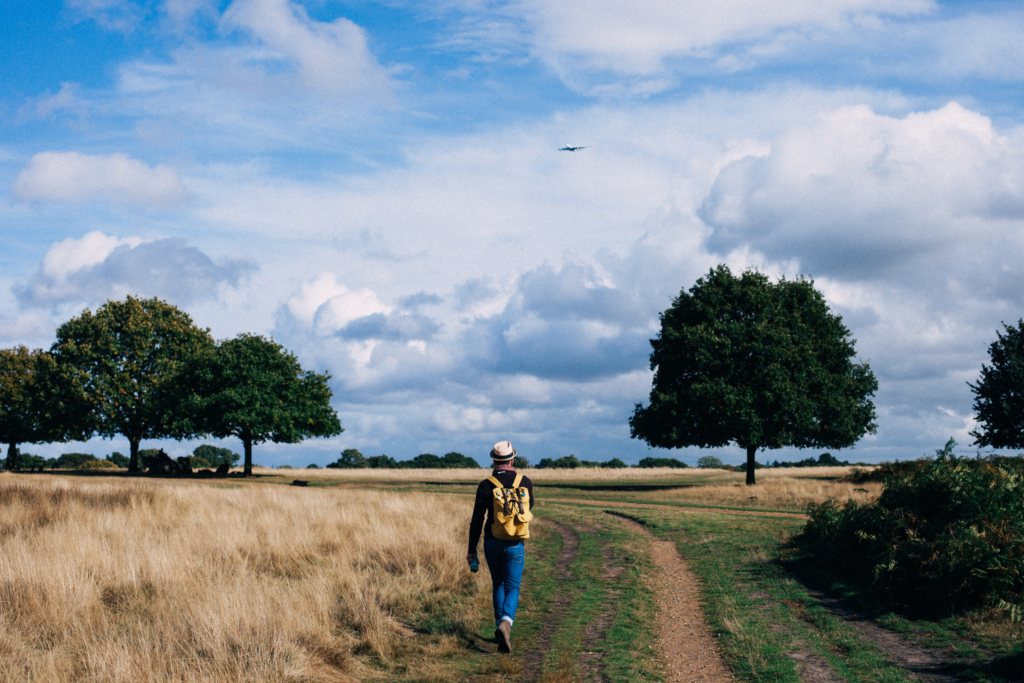It is easy to overlook and underestimate the ability that humans have when they walk, a seemingly mundane activity. We stand apart from the majority of other species on Earth thanks to this extraordinary talent. Walking is the superpower that enables us to explore, adapt, and survive in a variety of habitats.
Our evolution has been largely shaped by walking, which is a vital component of human mobility. It still plays a significant part in our daily lives. In this article, we shall explore the reasons, backed up by scientific evidence, why walking might be seen as a superpower for humans.
The Evolutionary Benefit of Bipedalism
The fact that humans only move on two feet, or bipedally, is one of the strongest arguments in favor of walking being a superpower. Paleoanthropologists believe that the transition of our early ancestors from quadrupedalism to bipedalism marked a turning point in human evolution.
They were able to liberate their hands as a result of this shift, which eventually resulted in the creation of tools and the capacity to influence the environment.
Bipedalism was the key adaptation that set the stage for everything that was to come in our human evolution.
Expert paleontologist Donald Johanson made this observation.
Our predecessors were able to travel great distances on foot because of this adaptation. It not only made using tools easier but also unlocked new lands and resources. Early humans were able to become efficient hunters and gatherers thanks to walking, which laid the groundwork for our species’ survival and eventual dominance of the world.
Mental Health
Additionally, walking improves mental health by lowering stress, anxiety, and despair. It promotes the production of endorphins, which are known to naturally elevate mood, and offers a chance for mindfulness and relaxation.
Walking in natural settings can have a particularly beneficial effect on mental health since it enables people to be in touch with nature and feel calm and renewed. It has been associated with lowered risk factors for a number of chronic diseases, such as obesity, diabetes, and heart disease.
Furthermore, it helps with maintaining a suitable weight, strengthening cardiovascular fitness, and building stronger, more flexible muscles. In order to promote both the physical and mental health of his patients, renowned physician and author Lewis Thomas said, “If I could prescribe a single magic potion to improve the physical and mental health of my patients, it would be exercise, specifically walking.”
Environmental Impact and Sustainability
Walking is a superpower for both people and the environment. Walking stands out as a sustainable means of transportation at a time when environmental issues are at the forefront of national and international debates.
Walking is the best possible exercise. Habituate yourself to walk very far.
By author and environmentalist Bill McKibben.
It has a much smaller environmental impact than driving a car because it produces no pollutants, uses no fuel, and has no fuel consumption. Promoting walking as a means of transportation can lead to a more sustainable and environmentally friendly future. This can minimize air pollution, traffic, and greenhouse gas emissions.
Mobility and Physical Fitness
Maintaining physical fitness and mobility becomes more crucial as people age. Regular walking helps enhance and maintain physical fitness, including cardiovascular health, muscle strength, and flexibility. When compared to more intensive exercises, walking is a low-impact exercise that is easy on the joints, making it accessible to people of different fitness levels and lowering the chance of injury.
Walking reduces the risk of diseases associated with age, including osteoporosis and sarcopenia (muscle loss), which can make older people more fragile and limit their mobility. Walking also strengthens bones and muscles.
Memory and Attention
Your heart rate rises when you exercise, such as walking, which improves blood flow to all parts of your body, including the brain. The blood flow improves the health and performance of brain cells by supplying them with more oxygen and nutrients. The ability to retain memories and think more clearly is linked to improved blood circulation.
Exercise stimulates the release of dopamine and serotonin, two neurotransmitters. These neurotransmitters are essential for controlling memory and other cognitive processes as well as mood. Dopamine, for instance, aids in bringing together memories over time.
Walking outside stimulates your senses as you interact with your surroundings. Your brain may stay engaged and active by being exposed to different situations, sights, sounds, and fragrances. This stimulation can improve memory, among other cognitive processes.
Hippocampal Function and Neuroplasticity
The ability of the brain to change and create new neural connections is known as neuroplasticity. Regular exercise, such as walking, has been demonstrated to improve neuroplasticity, which is crucial for memory and learning. It enables the brain to reconfigure itself and develop information-processing pathways that are more effective.
A part of the brain known for memory storage and retrieval is the hippocampus. Walking has been associated with better hippocampus function and an increased volume of hippocampal neurons. This may result in improved memory recall and storage.
Minimal Cognitive Decline
Walking helps to maintain cognitive health and may reduce the risk of cognitive impairment associated with aging. A reduced risk of cognitive decline and neuro-degenerative diseases like Alzheimer’s disease is linked to regular physical activity, especially walking.
Exercise may improve overall brain health. It is essential for memory retention as people age, as well as the prevention of damage to brain cells. It is crucial to remember that different people may have different memory benefits from walking, and the degree of improvement may rely on a variety of variables, including the frequency, intensity, and duration of walking as well as the person’s general health and lifestyle.
However, you can support memory retention and cognitive performance by including frequent walking in your daily routine. It is quick, easy, and beneficial.
Community and The Natural World
People have a special opportunity to engage with the natural environment and their communities through walking. Going for a stroll allows us to more fully take in the sights, sounds, and fragrances of our surroundings. This interaction encourages a sense of awareness and gratitude for the surroundings.
In every walk with nature, one receives far more than he seeks.
By John Muir, a writer and naturalist.
Aging gracefully requires having a sense of community and social relationships. Walking can be a good way to socialize because it allows for interactions with friends, family, and other walkers. A sense of community and support can be fostered by taking part in community-based walking programs or group walks. These programs can help older people who might otherwise feel lonely and isolated feel less alone.
Walking is also a social activity that promotes interactivity and ties the community together. It encourages in-person interaction, cultivates a sense of community, and fortifies interpersonal ties. Walking side by side can cross barriers and create connections between people.
Finding Solutions and Innovation
Many great minds, including Charles Darwin and Friedrich Nietzsche, attributed their ability to be creative and solve problems to walking. Walking, especially in natural settings, can inspire original thought and promote creative problem-solving.
It certainly is a superpower for humans since it offers a variety of health, social, and economic advantages. Its ecological significance, health advantages, positive environmental impact, community-building potential, and function in promoting inclusivity and creativity all serve to highlight its significance as a necessary component of human life.
Conclusion
In terms of our evolutionary history, advantages to our bodily and mental health, effects on the environment, and social ties, walking is without a doubt a superpower for humans. It has contributed to the success of our species by allowing us to explore and adapt to a variety of surroundings.
Let us not undervalue the power of walking as a simple yet transforming ability that enriches our lives and unites us with our history, present, and future as we try to manage the problems of the modern world.
All truly great thoughts are conceived while walking.
By philosopher Friedrich Nietzsche.
Due to its positive effects on physical health, cognitive function, mental health, and social involvement, walking is a key factor in aging gracefully. In the end, it improves their overall quality of life as they manage the aging process by allowing older people to be active, movable, and connected in a straightforward yet effective way.
Sana Ahmed Khan is a life coach and author of multiple books from Islamabad, Pakistan. As a certified life coach and author, Sana is keen on helping women from all walks of life. Sana empowers you to overcome self-doubt, find balance, and become your best self through her guidance focused on mindful living, social skills, and personal development.


